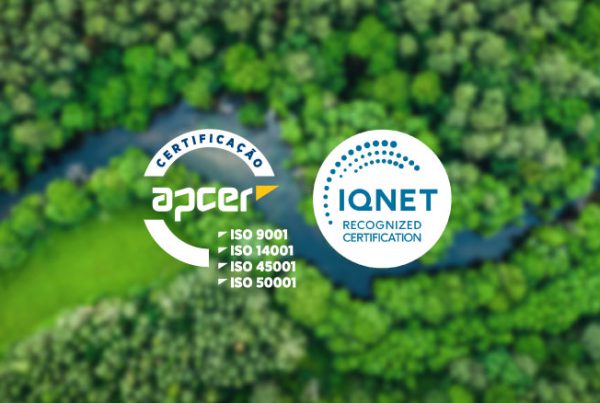How can we guide and teach our kids to use technology in a responsible way when technology is transforming itself faster than we can keep up?
Within the context of this digital transformation, the concept of digital citizen has arisen, which can be defined as an individual who uses Information Technology effectively and in a regular basis with the purpose of engaging in society, politics, and government.
In this logic of thought, digital citizenship refers to a responsible usage of technology and this also means teaching about digital citizenship that is fundamental to assist learners in achieving and comprehending digital literacy, as well as guaranteeing cyberbullying prevention, internet safety, digital responsibility and digital health and wellness. Basically, it comprehends how an individual should behave in the digital sphere of life.
The Council of Europe’s Competences for Democratic Culture(Council of Europe, 2016) promotes a starting point approach to digital citizenship, noting the skills that citizens need to acquire if they are to participate and collaborate effectively in a culture of democracy are not acquired automatically, but need to be learned and putted into practice. With this in mind, education plays an essential role in preparing teenagers to live as active citizens.
Therefore, we should catch on digital citizenship in a global point of view and through which it addresses how we participate and contribute in blended worlds (physical and digital) and how we can leverage the digital world to grow citizens in this new reality.
In this bubble of engagement and participation, it also fits connection and contribution and within this global outlook, digital citizenship also embraces how we can govern technology for the sake of ourselves and others (individual and community). In addition, it views the world as an interconnected community, sharing technological and human experiences independently of the cultural, social, political or religious background.
Guiding students and teenagers to participate effectively, safely and critically and responsibly in a world filled with social media and digital technologies is a priority for today’s teachers.
Therefore, teaching digital citizenship is fundamental to give learners essential tools of success, equipping them with the knowledge, resources and skills to thrive as lifetime learners.
How can we assist students and teachers comprehend that good digital citizenship also implies the use of the digital tools we have at hand to do good things in (and for) the world?
The definition of digital citizenship has flourished to keep up with a range of skills, behaviours, advantages and attributes that seize the opportunities and benefits fostered by the online sphere while building up resilience to potential damages.
- Citizenship in the digital era
School institutions have already dedicated attention and time to include citizenship themes into their curricula. However, the fact is nowadays much of our social interaction occurs online and this brings teachers into trying to figure out how to teach learners about responsible digital citizenship, as well. In reality, the two actually are not that different.
- Embed digital citizenship instead of just teaching it
Teachers of this new digital era understand children do best and achieve more when they have the opportunity to learn something authentically by figuring out on their own their own answers to a real-life challenge that is relevant for them, their development and their future.
- Empower your students to take ownership of the digital side of their lives
Learners need digital citizenship competences to collaborate fully in their communities and to make smart choices in life and online.
There is a major difference between good digital citizenship and bad digital citizenship. On one side, good digital citizenship engages the youngsters and shows them how to connect with one another, to nourish empathy with each other. On the other side, bad digital citizenship covers cyberbullying, irresponsible social media usage and a general lack of knowledge about how to safely and effectively use the digital tools.
If our purpose is to teach digital citizenship in a perspective of awareness, it is important to focus seven key concepts to assist students:
- Empathy
- Understanding how the Internet works
- Comprehending user data
- Putting into practice digital literacy
- Acknowledging the digital gap
- How to secure digital devices
- Practicing digital wellness
Following these seven key concepts, we can outline a few good examples of digital citizenship, such as: respecting other’s privacy, communicating with respect, seeing things from another perspective and sharing work, feedback and useful content.
Why digital citizenship became so important?
This is a naturally fundamental issue and substantially fair. Why it is so essential to both, present and future?
If we dare to concentrate it in one single ideal:Â mindful leadership, whose essence is present in four dimensions:
Personal: We take huge parts of our real lives into the digital sphere freely and without considering its real risks. We need a set of self-governance’s skills in order to keep us safe.
Global:Â We are now more connected than we ever were, however, we are often less tuned into others than ever. As a community, we need harmony, engagement and connection in a rapidly transforming world.
Digital: Internet is evolving wildly, and it can be a good or a bad thing. It is important to set an example to others on how to comprehend Internet potential dangers and how to cope with them.
Environment:Â Climate change, resource deletion, digital and industrial pollution are some of the growing threats. We need to gain the needed competences to deal with these big challenges and design and foster solutions towards a healthier and greener planet.
In sum, digital citizenship brings a new dimension to citizenship education, focusing on teaching students to work, live and share in digital environments in a positive and collaborative dynamic.



